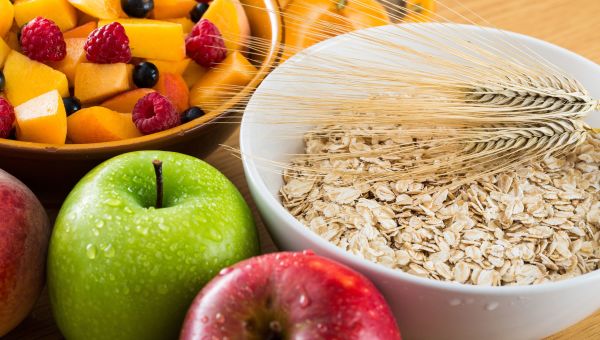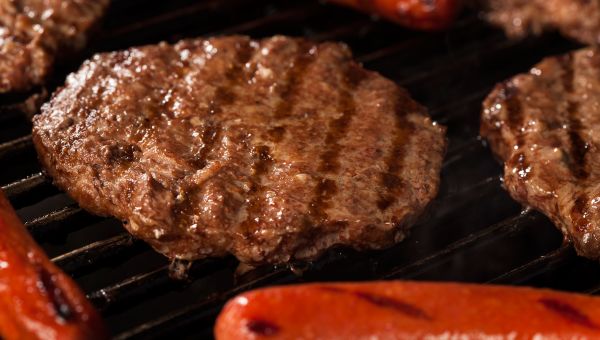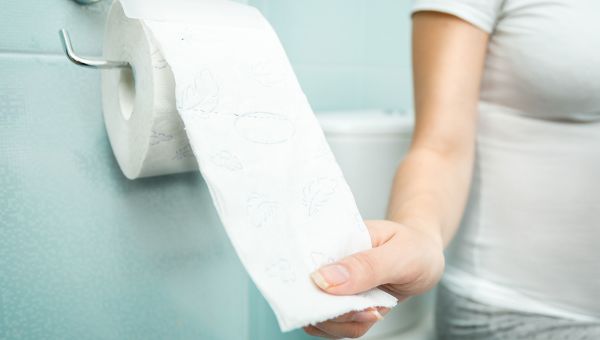6 easy things you can do for better digestion
Keep your plumbing working smoothly with these tips.

Most people don’t think much about their digestive system until it goes out of whack with symptoms like constipation, diarrhea, heartburn—or a chronic condition like irritable bowel syndrome (IBS) and diverticular disease. Fortunately, there are ways to stay regular in the bathroom and head off digestive problems before they start. Here are seven simple, actionable things you can do, starting today, for a happy, healthy gastrointestinal tract.

Eat more fiber
The average American only consumes 16 grams of fiber each day, far less than the recommended daily consumption. You should be eating between 21 and 38 grams of fiber, depending on your age and gender.
There are two types: soluble and insoluble. Neither gets digested. Insoluble fiber passes right through the digestive tract and adds bulk to stool, keeping you regular and helping to prevent constipation. Soluble fiber first pulls in water and turns to gel, which slows digestion and increases feelings of fullness. You need both.
Sources of soluble fiber include:
- Oats
- Barley
- Beans
- Peas
- Apples
- Citrus fruits
- Carrots
Sources of insoluble fiber include:
- Whole wheat
- Nuts
- Beans
- Cauliflower
- Green beans
- Potatoes
You’ll want to increase your fiber intake slowly, especially if you have irritable bowel syndrome, to avoid gas and bloating. And be sure to drink plenty of water so you don’t get constipated.

Eat less red meat
The World Health Organization (WHO) caused a media stir in October 2015 when it released a report saying red and processed meat increases the risk of colorectal cancer. While you won’t get cancer from one hamburger or hot dog, it’s a good reason to go easy on meat.
Another reason to eat meat in moderation? Eating less meat can reduce your risk of diverticulitis. Diverticulitis causes painful pouches in your intestines and sometimes requires surgery to remove parts of your colon. Even replacing one serving of red meat per day with chicken or fish can help reduce your risk.

Take an after-dinner stroll
When you’re done with your meal, get up and walk around the block, even if—especially if—you’re feeling full. A post-dinner walk will help your stomach empty faster.
Exercise in general is good for lots of things, including the gut. It improves irritable bowel syndrome symptoms and may stop the condition from getting worse. Regular exercise can lessen symptoms of inflammatory bowel disease (IBD), as well as improve some of the conditions often seen alongside IBD, like depression and bone loss. Exercise even lowers the risk of colon cancer.

When ya gotta go, ya gotta go
Sometimes you can’t get to a bathroom, and sometimes the bathroom you can get to looks—and smells—like a sewer exploded. It’s alright to hold your poop once in a while, but don’t make a habit of it.
Your digestive system relies on muscles surrounding your anal canal and nerve endings in the rectum, working together, to let your brain know that you either need to pass gas or have a BM. Whether you allow gas to escape or head for the bathroom is up to you. To hold it in, you have to tighten the muscles that move your bowels. Do this too often and it will lead to constipation.

Stay hydrated
Getting enough water is a double whammy to keep your digestive tract healthy. First, when you have water with meals it aids digestion by helping to break down food in the stomach. Second, water keeps stool soft, which can head off constipation and help make moving your bowels easier.
The old advice to drink eight glasses of water a day isn’t necessarily true—or at least it isn’t the gold standard it was once thought to be. Everyone’s precise water needs are different. Drink when you're thirsty, and a bit extra if it’s hot or you’re very active.

Take a smoke break
We don’t mean go outside to smoke, we mean take a break from smoking. Among other things, stopping smoking can help improve your digestive health. If your efforts to stop haven’t yet been successful, try smoking just one less cigarette a day. Research suggests that people who cut down are more likely to quit.
That’s great for your gut, because smoking really does a number on your entire digestive tract. It increases the risk of mouth cancer, esophageal cancer and stomach cancer. It can also cause heartburn, ulcers, Crohn’s disease and colon polyps—or make them worse.
More On


video

article

slideshow


video


video
